Odyssey 5.327-423
We know this experience when dealing with the Department of Motor Vehicles, or on the phone with the cable company, of finding a sympathetic agent on the other end: “Finally, a human voice!” This saying does not only occur to us when one is dealing with machines, or ‘machine learning’; in dealing with any bureaucracy, there is the simple relief of stress when someone talks back. You are a hapless petitioner; they are a chaotically interconnected hierarchy—a contradiction in terms—who hold all the levers, look up all the by-laws, and make all the decisions, with authority, in your case. This relief in ‘the thick of it’ is what comes to mind as a goddess, Ino, comes to our hero’s aid when his situation is dire. This episode is not the first; earlier, Eidothea, Proteus’ daughter, took pity on Menelaus, comes to him when he is alone without his men, and betrays her father by instructing the man how to overpower a shapeshifter. (Hold him tight, even when he turns to water!) It is all too clear that these mid-tier ladies are doing what they can inside the system: “if it was up to me …”
Now here is Odysseus, in straits and on death’s precipice, a tumbleweed on the wind, on a self-made raft, in dark and surging seas. Ino comes to him, a daughter of Cadmus and Harmony. Or else she’s just a petrel who lands on his raft. But either way, she ‘was mortal, once upon a time, speaking human language.’ Odysseus has been completely alone for eighteen days. Finally, a human voice! Someone who can understand and sympathise! Ino was once a mortal, who suffered at the hands of the gods; among other things she was a nurse for her nephew Dionysus, a transformative figure in the development of religion, a son of her sister Semele by Zeus (the Holy Spirit). One does not know if it is a thing to note or ignore about Homer, that Dionysus only receives scant or tangential mention in his poems. But it seems each of the divinities in Homer knows their place. Even as far from Olympus as Calypso’s Isle, when they are all alone and intimate, Hermes asserts his office as Zeus’s message man, and bullies Calypso when she dares to complain. She rescued Odysseus all by herself, when no one else (not even Athena) seemed to care. But no, she’d better not hook up with a human guy.
Ino is also Leucothea, the White Goddess, a saviour of mariners. I suspect that modern mariners still believe in Her, though they are no longer so foolish as to admit it. The White Goddess embodies a highly local and, we might say, superstitious experience of the divine. Homer merely mentions the name, we don’t exactly know what allusions he understands to be entangled in its aura. But he is explicit that, ‘officially’ as it were, she has ‘now in the salt-water depths … got her portion of honour from the gods …’ In other words, she’s been assigned a job in the basement. It seems consonant with this comic world that the gods are in amongst it, plugged into an hierarchy where some of them work the kitchen. It helps make plausible their occasional sympathy, when there is an actual sense in Homer that we’re all in this together, witches, warlocks, angels and saints. Even Zeus often comes across not so much as an omnipotent, as a lame duck still henpecked in office. In the Odyssey, it seems we are always looking forward to retirement.
It helps to know someone inside the system, even if they work in a basement cubicle. It is extraordinary to me that Homer understands this intensely modern and bureaucratic mode of connection, where it becomes salient that one is talking in sympathy to someone who was once a mortal human being, before they became a corporate official. She speaks our language. This poet’s society has vanished, but it must have known intimately the experience one has when assigned a job (a ‘portion’) in a bureaucracy, so much so that it defines the experience of what came to be called ‘fate’, but is also projected onto the imagined life-experience of the gods. We know this condition (and this comedy) from the necessary bureaucracies of modern societies and infrastuctures. How does Homer know this?
A teacher once told me that the most relatable thing Odysseus ever did was ignore Ino’s advice and the gift of her immortal veil, and stick to his raft, until his rational empirical judgement forced the issue. Cling to the protection you yourself have made, the evidence of your own eyes about its sturdiness, and your sighting of the promised land; trust your eyes and hands, before some divine trickery! And trust in Calypso’s clothes to keep you warm and free from harm. But her magic island is now far distant. At the crunch he bestrides a plank like a racehorse—what an image!—and strips himself naked, except for Ino’s veil tied beneath his breastbone.
Ino’s veil is ἄμβροτον, ‘immortal’. One wonders if it may work like ambrosial food, and make him immortal too. If he keeps it he could walk around like Bilbo with his ring, with this veil tied round his sternum, hidden under his shirt. But without a comment about his deliberations or hints at thoughts about the subject, when the time comes, he follows Ino’s instructions and throws the powerful object backwards into the brine. Odysseus always chooses mortality, it seems.
In Greek:

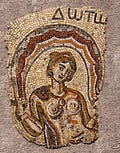
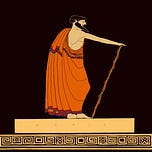

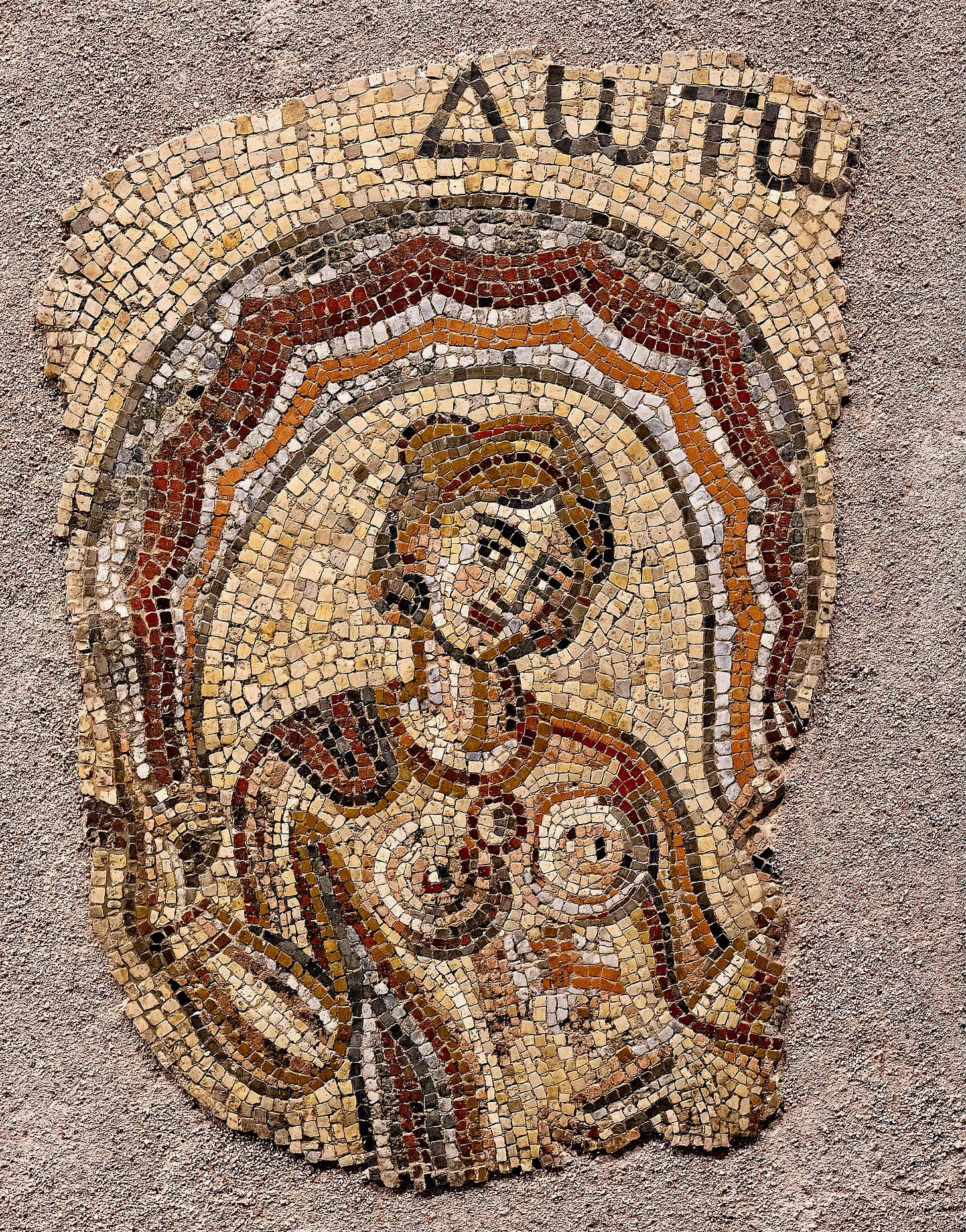

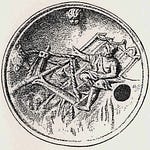

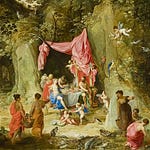
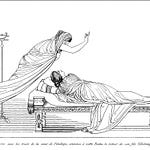
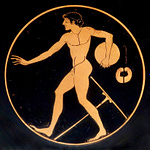


A Human Voice, Speaking Mortal Language: Homer in English